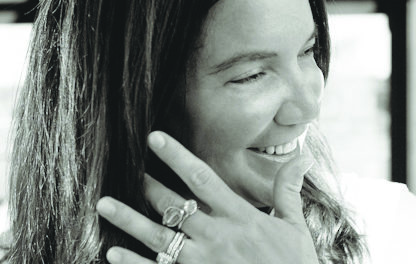Hot Take: (noun.) A piece of commentary, typically produced quickly in response to a recent event, whose primary purpose is to attract attention. – Oxford Languages Dictionary
I am really bad at hot takes. Really bad.
Some writers reliably know what to say – and exactly how to say it – in the hours, even minutes, following the latest Terrible Thing. How promptly they post their profundities to Facebook and Twitter! Their blogs and columns materialize like magic. In the immediate aftermath of tragedy – or even as it unfolds – their words seem to erupt from their volcanic hearts straight up through their blazing minds, then flow like molten lava down their arms to their fingertips, where they surely scorch the keyboard.
I am not one of those writers.
In the hours, even days, after the Uvalde massacre, my words were buried in rubble. My mind was numb. My fingertips were frozen. No hot takes from me.
At times like Uvalde, after the initial blitzkrieg of emotion, my first impulse is not to write, but to read. I read and read and read some more. I need answers. I crave answers.
Who did this? WHY did he do this? How did it happen? Why does it keep happening? What should we do about it? What CAN we do about it? How will these parents possibly survive? Will this be the time – finally – when everything changes?
Thanks to all those other volcano-like writers, there are always plenty of hot takes to feed my craving. Occasionally, those hot takes are nutritious and satisfying. More often, though, they’re like junk food, their empty calories leaving me slightly sick and hungrier than I was before.
This is not to say I don’t enjoy hot takes. I do, immensely. I also enjoy Nacho Cheese Doritos, but I don’t kid myself that they’re doing me any good.
And I don’t think the Hot Takes Industry is doing the world any good, either.
In pursuit of eyeballs – as many as they can get, as fast as they can get ‘em – the purveyors of quicky online content are all too often peddling shoddy provocation instead of quality analysis. And we’re all too eager to consume it. Heck, we’re eager to produce it, too. In the age of social media, everybody’s a writer. We’re all creating quicky online content, gratis, and Big Tech couldn’t be happier.
But it’s my fellow “professionals” I’m talking to now. It’s basically our job to lead the conversation, in our communities and beyond. It’s a serious responsibility with real-world implications, but often we treat it more like a game of extreme volleyball. (Slam! Spike!) We need to get a grip.
Think about it: In order to produce a piece of commentary quickly, in response to a recent event, most writers must sacrifice something essential to our craft. Will it be objectivity? Precision? Fact-checking? Mulling, ruminating, and pondering? To create a hot take, something’s gotta go, and often it’s several somethings.
Writing commentary is not that different from any other craft. Do carpenters do their best work when they rush? How about house painters? Granted, writers aren’t tasked with building structures that people live in, but we’re supposed to be building the framework for our national discourse. That’s not nothing.
My husband used to do lots of video production around here, and occasionally somebody would come to him with a project that needed to be done pronto, and also on the cheap. Jeff always replied, “There’s Fast, Cheap, and Good. Pick two.”
That’s how I feel about commentary. If you’re looking for thoughtful, well-informed analysis that takes a penetrating look at a current event – and you want it fast – you’re going to pay for it. (Or worm your way through a paywall, at least.)
Some of the nation’s top columnists are so well-informed on the issues – and so steeped in various perspectives – they can crank out excellent commentary on the fly. The rest of us? Again, pick two.
A free paper that publishes every couple of weeks is perfect for a writer like me. I have time to deal with my emotions, do my research, gather my thoughts, then aim for “good.” And even if I miss that target… well, at least it didn’t cost you anything.
Hot takes are all too often written by people who’re paid to care more about being fast than being good. And by “good” I mean everything from “accurate” to “thorough” to “interesting” to “meaningful.”
In the days following the Uvalde horror, I read all the hot takes I could take, and then I read some more. It’s now two weeks later and you know what? I still don’t feel qualified to write about it.
Oh, I can write “hot” when it comes to light, happy happenings. Take me to see ‘Top Gun: Maverick,’ and I’m pounding out a rapturous Facebook review while my husband’s driving us home from the theater. Show me an unusual bird in my backyard, and I’ll start penning an ode while it’s still at the feeder. I’m a compulsive off-the-cuff expresser of enthusiasm.
But when awful things happen, I go silent.
Because awful things deserve our silence. At least for a little while. They deserve a pause. A period of quiet reflection. Radical humility. Reckoning. Respect. What they do not deserve is an immediate deluge of hot takes.
I’ll never forget one I read on Facebook the day after Uvalde. A writer who shall remain nameless avowed, with fiery indignation, that Americans who support the 2nd Amendment don’t actually love their children and grandchildren. (“If you say you do, you’re lying!” he raged.) I read numerous variations on the now-familiar theme of “thoughts and prayers” – nothing makes some people madder than that phrase – and from the other side of the spectrum came several refrains of “Guns don’t kill people, people kill people,” along with the ever-ubiquitous allusions to mental illness.
I started to wonder if anybody even pretends to think before they write anymore.
The hot takes were coming fast and furious, almost as if they’d been prewritten and kept on standby, just waiting for the next Terrible Thing. Insert new name and body count, rinse and repeat.
The rage. The defensiveness. The blame-casting. All valid responses, but they almost feel rote by now.
And I get it. Rage is a normal human emotion. So is defensiveness. The need to cast blame? To explain the unexplainable by way of a scapegoat? That’s as normally human as it gets. And we’re all so very sick and tired.
But this issue deserves better. These children deserve better. They deserve a better conversation. A conversation that leads to actual understanding, compromise, and – please, God – lasting change.
So what are we grown-ups going to do about that? What are we content creators – and now I’m talking about all of us – going to do?
For starters, we could vow to resist hot takes – both producing them and consuming them. What if we all just said no to the empty calories – the provocations, the recriminations, the oversimplifications – and committed ourselves to a better conversation?
Without so many hot takes to distract and divide us, maybe, just maybe, cooler heads would prevail.






